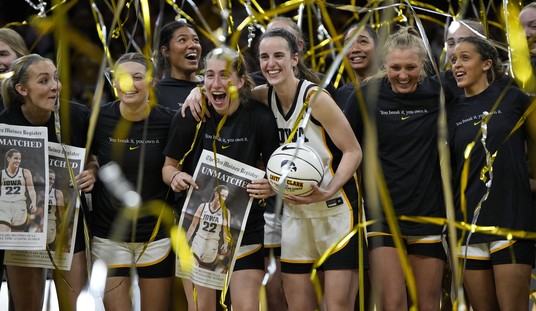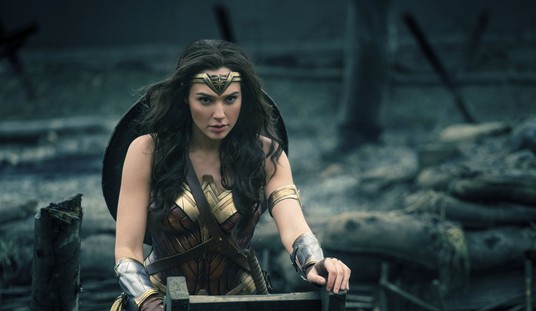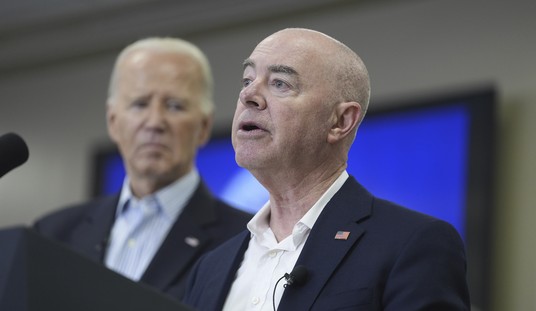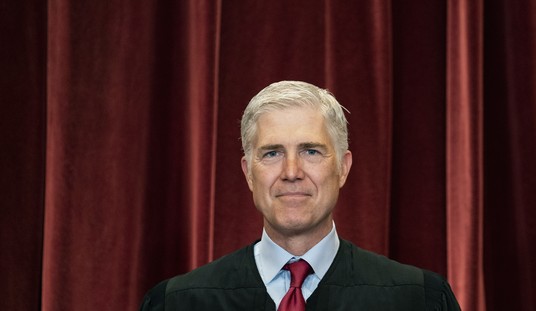David Letterman, 67, announced on Thursday that he’ll be retiring sometime next year. But it’s been an interesting, if raw and painful decade for the chat show host leading up to his decision, particularly after he did something that Johnny Carson never did on air: he dropped the mask and revealed his misanthropic inner self to the world.
We’ll get to that in just a moment, but first, some background. As Rob Long writes in his review of Henry Bushkin’s biography of Carson in the new issue of Commentary, a nightly talk show host with a lengthy career has a particularly challenging assignment maintaining his on-air facade:
We’re all primed to hear stories of movie stars and celebrities and their creepy emotional problems. But for actors—who, after all, appear only on screen, in character, or in a few carefully stage-managed publicity appearances—it’s easy to cover up the seams of a psychotic or broken-down personality.
But Johnny appeared on television every weeknight. He was playing himself—or, rather, an idealized version of himself: jovial, chummy, witty, warm. The strain of that kind of acting must have been monumental. It’s no wonder that real movie stars—Jimmy Stewart, Michael Caine, a whole bushel of A-listers—respected him so much. In one of the best stories in a book filled with great stories, when Johnny arrives late to a very exclusive industry event filled with movie stars, he lights up the room. He wasn’t just the king of late night television. He was the king of managing not to appear like the rat bastard he clearly was.
Presumably, a man who has made his living for a quarter century interviewing famous people in front of millions should have banked plenty of methods along the way to artfully duck a question. The smartest politicians and celebrities share the ability to say nothing while saying it beautifully. So it’s ironic — particularly given that irony was how he built his career — that David Letterman’s luster was permanently scraped away on October 27th 2006, with just one question from a very different television interviewer who happened to be on his show, Bill O’Reilly:
In now a famous “You Tube” moment, Bill O’Reilly of the Fox News Channel, went on Letterman to be the recipient of the host’s rude and sophomoric antics. As the segment shifted into high gear, O’Reilly asked Letterman a pointed and direct question: “Do you want the United States to win in Iraq?”
To the surprise of no one but his sycophants, Letterman could not or would not answer the question. When pressed by O’Reilly to answer, the best he could do was to play to his mostly left-leaning audience for cheap debating points and say, “It’s not easy for me because I’m thoughtful.”
Ironically, in February 2006, just three and a half years prior, Letterman shared this exchange with another famous newsman, Tom Brokaw:
On Thursday’s Late Show on CBS, NBC News anchor Tom Brokaw told David Letterman how people in Iraq “are afraid to say anything because the wrong thing gets them not only in trouble, but probably executed.” Brokaw related how when he was in Baghdad in December, a man approached him and in a loud voice praised Saddam Hussein and promised to fight American invaders, but in a quiet voice he expressed hope that the Americans would arrive before Christmas since “we’ll be very happy to have them come here as quickly as possible.”
That arc, and that length of time, from believing, at least on some level, in the liberation of Iraq from Saddam Hussein to diminishing the American war effort, follows the timeline of another CBS legend, Walter Cronkite, who during the course of the mid-1960s, went from a true believer in the policies of JFK and LBJ to declaring the Vietnam a failure. But while Cronkite in 1968 declared Vietnam “a stalemate,” to the best of my knowledge, he never actively wished for America to lose.
And that’s where Dave miscalculated. It’s one thing to question a war — Americans question political and foreign policy goals all the time — but openly wishing on the air for American failure at war is inexcusable, even from a dedicated postmodernist like Letterman. In the mid-’80s, Letterman’s misanthropy defined itself in mocking the titanic egos of his fellow stars. Twenty years later, those same misanthropic impulses were causing Letterman to wish for American defeat, and tacitly, along with it, even more American and Iraqi bloodshed.
After O’Reilly’s question exposed him, Letterman seemed to be an increasingly cranky and bitter man; the nadir was attacking Sarah Palin’s 14-year old daughter in 2009.
Last night, Palin got a modicum of revenge, during a segment with Sean Hannity. Tony Lee writes at Big Hollywood that when told of Letterman’s upcoming retirement, “‘It’s cool,’ Palin said tersely. ‘Out with the old, in with the new,’” a particularly delicious retort to a man who works in an industry obsessed with maintaining a youthful façade.
Speaking of “cool,” shortly after replacing Jack Parr and Steve Allen on NBC’s Tonight Show, Johnny Carson came to define the word in the mid-1960s. Even before Marshall McLuhan declared television to be a “cool medium,” Carson transformed himself into the coolest personality on television, not in the Fonzie, Brando greaser sense, but in the emotionally reserved definition of the word “cool.” And Carson’s cool persona allowed him to ride out the chaotic and very uncool 1970s, and to age gracefully until his retirement in 1992. However much he may have been a “rat bastard” off-screen (and he was), Carson’s on-air persona seemed built to last, a self-invented impenetrable front until the end of his television career. Letterman, who began his career as a master of fratboy irony, didn’t age nearly as gracefully.
As John Nolte writes today at Big Hollywood, “CBS Is Probably Thrilled to Be Rid of David Letterman:”
At 67 years of age, and long past his stale date, the Not-King of Late Night’s David Letterman announced Thursday that he will retire sometime next year. Letterman told his audience last night he had always held the belief that, “When this show stops being fun I will retire — 10 years later.” Well, no kidding. And although they will never say so, CBS has to be thrilled to finally be rid of David Letterman.
When asked if he would ever retire Letterman, CBS President Les Moonves never wavered from the answer, “You don’t do that to a television legend.”
Hardly a ringing endorsement.
From a strictly business point of view, it was time for Letterman to go quite a few years ago. The New York Times reports that Letterman’s ratings had declined to just 2.8 million viewers; a loss of 6% from last year and a brutal loss of 17% in the advertiser-coveted 18-49 age demo.
To place those numbers into perspective, at his ratings peak in 1969, when television consisted of three commercial networks and the Internet was something experimental running on tin cans and strings between a handful of universities, Carson pulled in 40 million viewers during that same time period; his final show in 1992 was watched by 50 million.
“When this show stops being fun I will retire — 10 years later.” That countdown is only a year off from O’Reilly’s question nearly a decade ago to next year. And Letterman’s dissipated final days as a host are a reminder that, while those of us who were his champions in 1992 hated NBC’s decision to go with Jay Leno to replace Johnny Carson, NBC ultimately made the right decision, one that has been proven both in the ratings war, and by time.
And eventually by Dave himself, a reminder that if you live by nihilism and irony, it’s only a matter of time before those two toxic ingredients consume you as well.
Related: Matt Zoller Seitz of New York magazine spinoff Vulture.com (h/t: 5’F) dubs Letterman “A Smudge on the Collective Unconscious:”
Letterman’s artistic achievements are substantial, though, and nobody can take them away from him, just as nobody can take the first ten or so years of The Simpsons away from Matt Groening, or the first five seasons of SNL away from Lorne Michaels, or the the years 1986—1992 away from Spy magazine. The struggle to take over The Tonight Show alone deserves a fat footnote in the story of TV in the ’90s. It was one of the first truly inside-showbiz stories to spill out of the trade papers and the New York Times and enter mainstream gossip, alongside who was sleeping with whom. The whole sorry affair was chronicled in Bill Carter’s book The Late Shift, which (incredibly) became a top-of-the-line HBO film, with John Michael Higgins as Letterman, Daniel Roebuck as Leno, Kathy Bates as Leno’s profane and ultimately self-immolating manager Helen Kushnick, and longtime Carson impressionist Rich Little as Carson. I know showbiz journalists and a good many regular viewers who can recite every twist in Carter’s narrative the way Greek children used to be able to recite the highlights of the Peloponnesian war. (Remember when Leno hid in a closet and eavesdropped on his bosses?)
And from the home office of fellow former Letterman fan Jim Treacher, the “Top 10 Reasons David Letterman Is Retiring.”









Join the conversation as a VIP Member